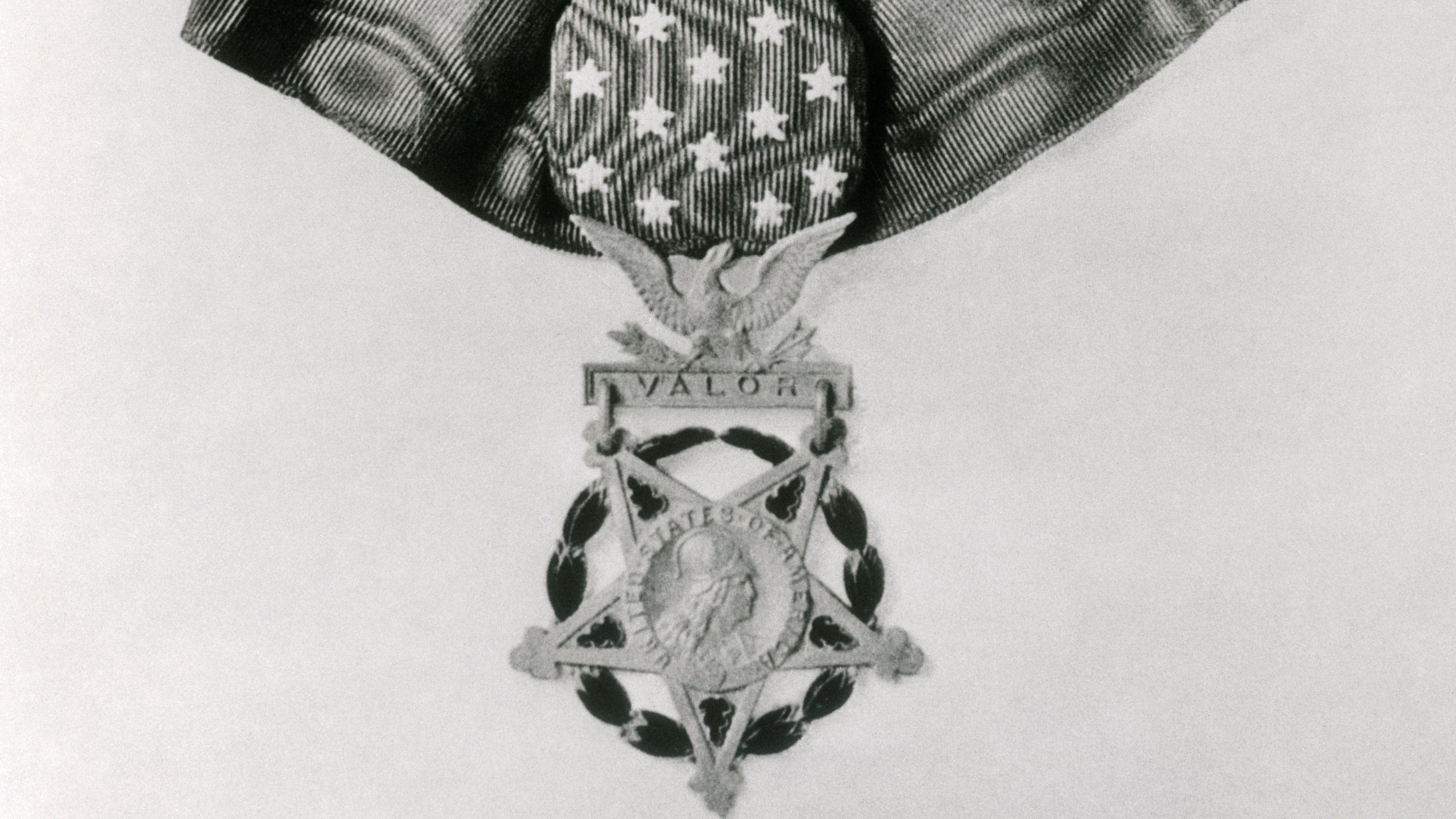Though he had landed on the beaches of Normandy and been wounded in battle fighting with the U.S. Army, Staff Sergeant Marcario García was not yet a U.S. citizen when President Harry S. Truman awarded him the Medal of Honor on August 23, 1945. García became the first Mexican national to receive the American military's highest honor.
García was born in the Mexican state of Coahuila, which borders Texas, in 1920. When he was young, his family moved to Texas to work on a cotton farm, and the work prevented him from progressing beyond a grade-school level of education. At the age of 22, he enlisted in the Army and was deployed to the European Theater of World War II. García was wounded in action during the D-Day landings, spent four months recovering, and then re-joined his unit as it advanced into Germany. On November 27th, 1944, García was acting squad leader when his unit was assigned to clear two German machine gun nests. García single-handedly cleared the first, advancing with little cover and receiving multiple wounds in the process. He returned to his unit, where it was suggested that he seek medical attention, but the second nest opened fire. "Utterly disregarding his own safety," in the words of his Medal of Honor citation, García charged the second nest, killing three more Germans, taking four prisoners, and achieving his unit's objective. He was awarded the Purple Heart, the Bronze Star and the Medal of Honor.
Shortly after receiving the Medal of Honor, García was denied service at a restaurant in Richmond, Texas because of his ethnicity. A brawl ensued, during which the restaurant owner beat García with a baseball bat. The assailant even pressed charges against García after the incident, although they were dropped when the national media caught wind of the racist attack against a military hero.
García later received his high school diploma and went to work in the Veterans' Administration. García met President John F. Kennedy on the last night of the president's life. When Kennedy visited Houston in November 1963, he made an evening appearance at an event for civil rights activists at which García was assigned to greet him. The next day, Kennedy was assassinated.

